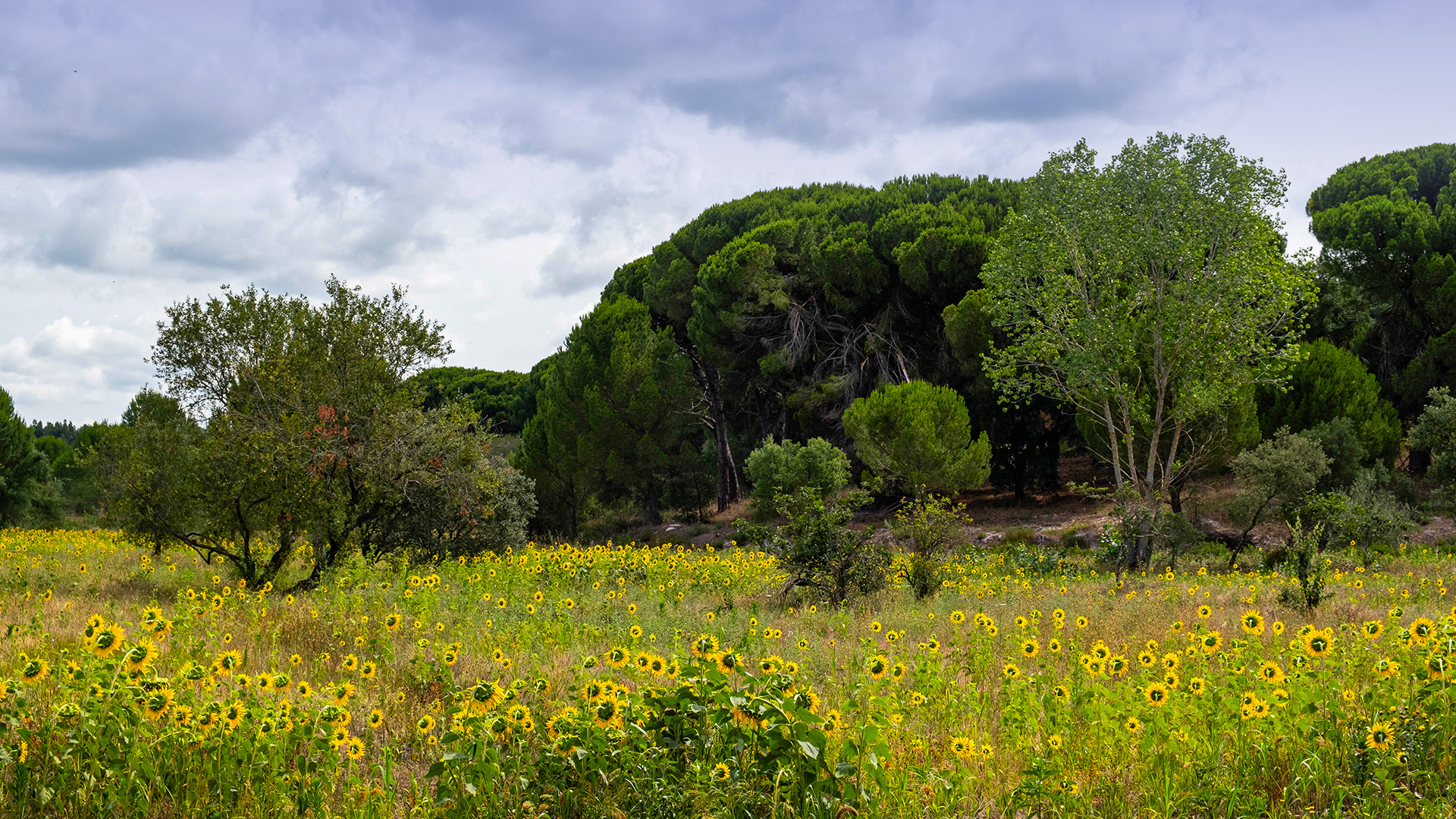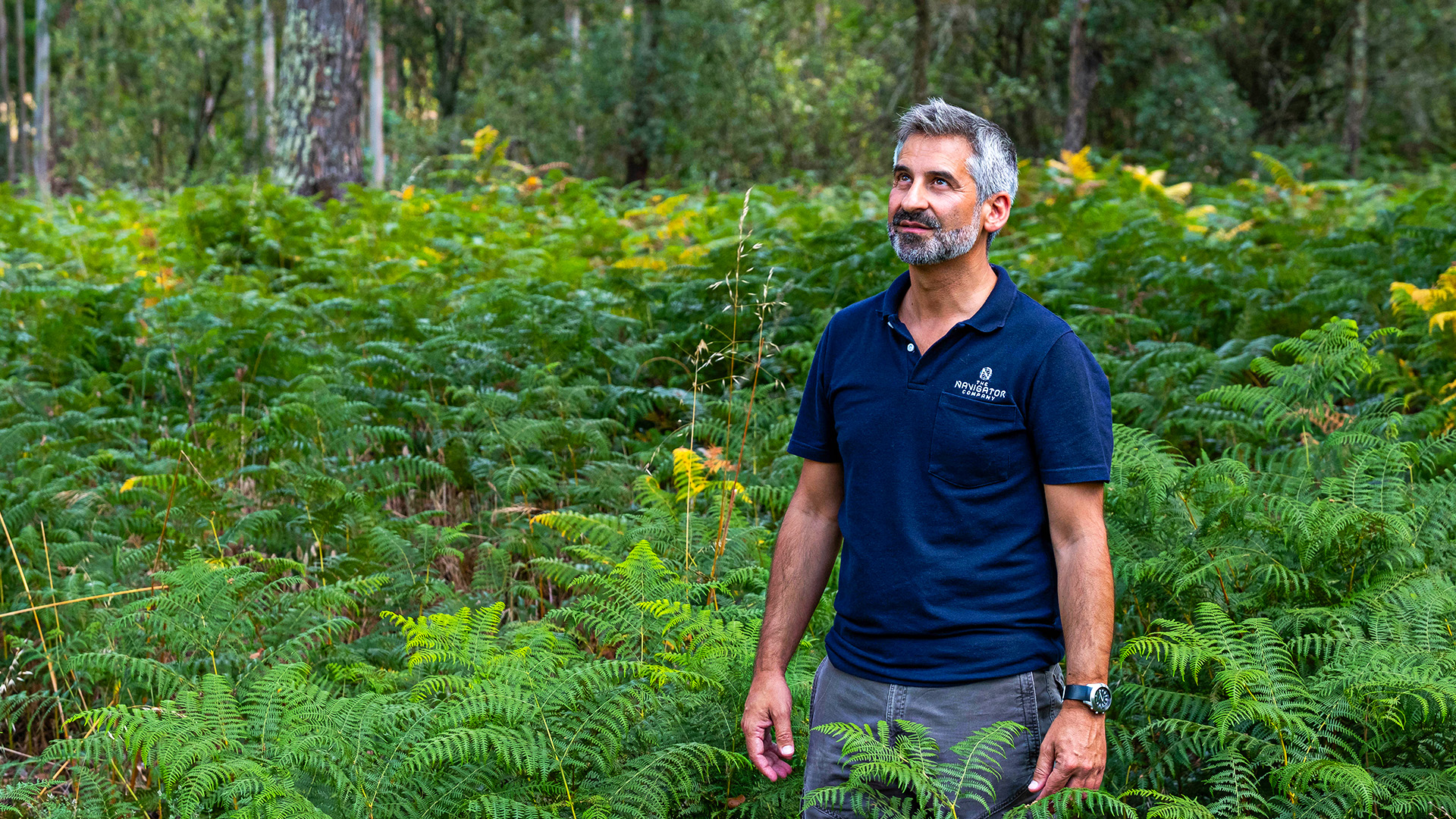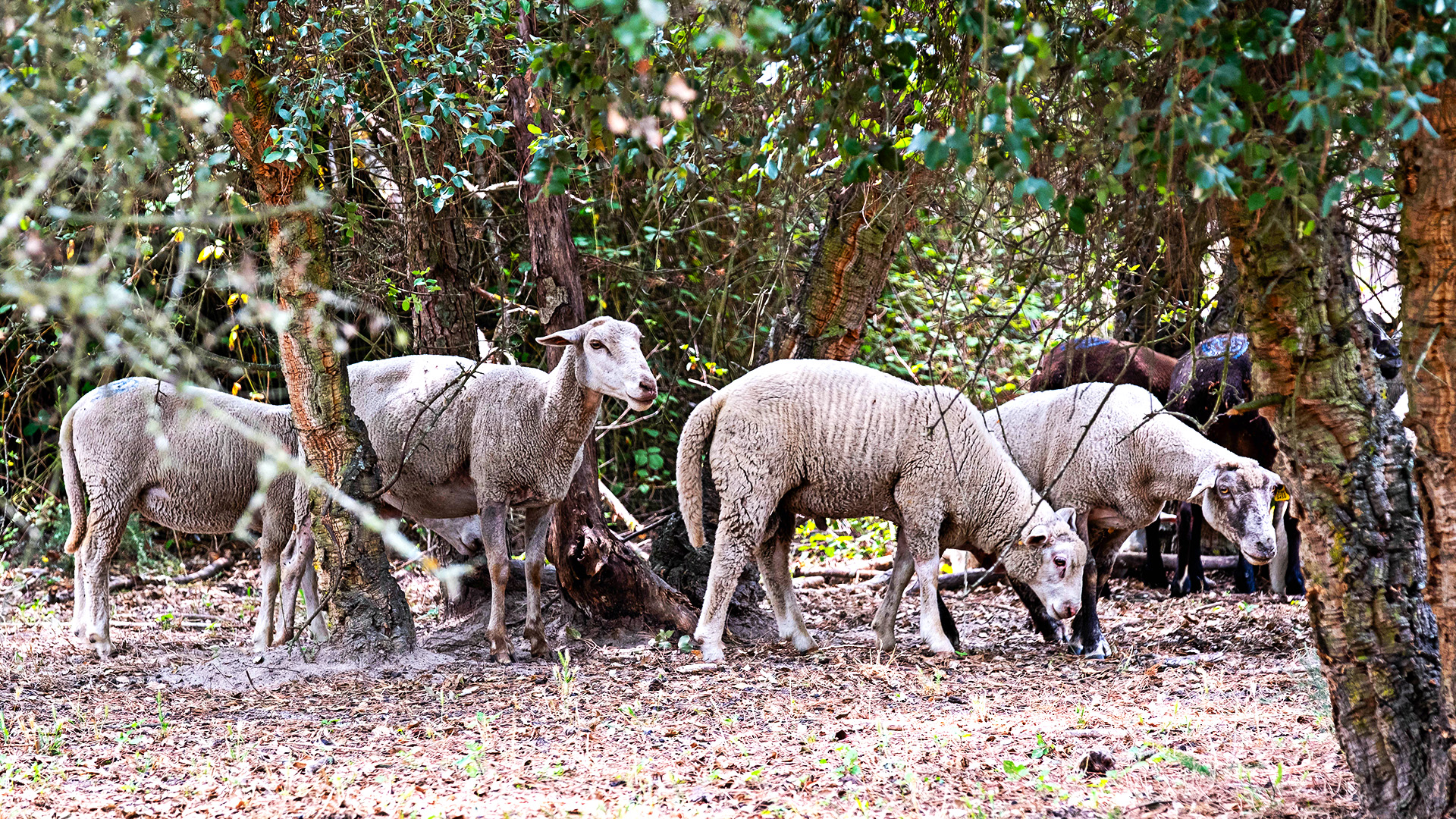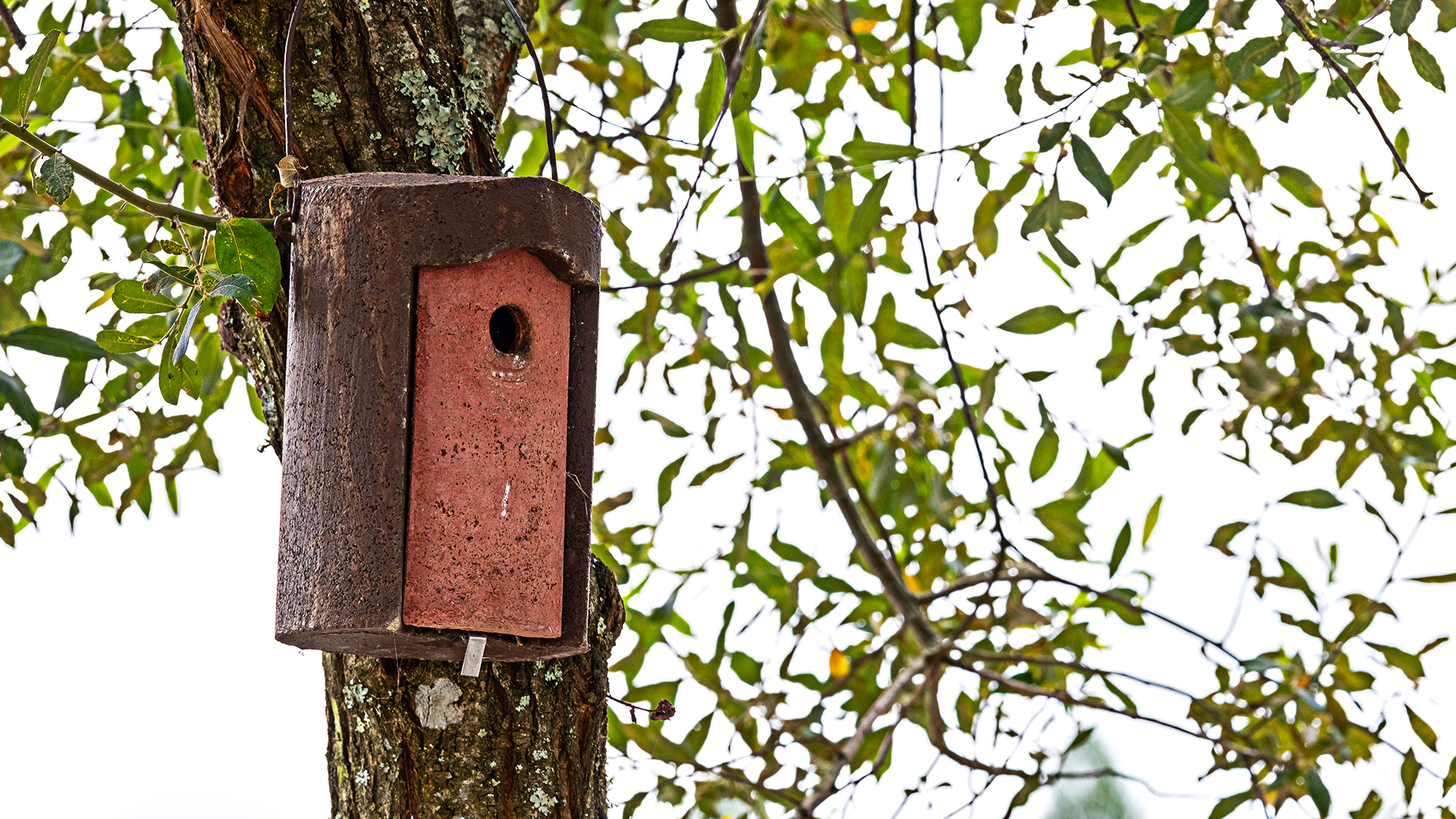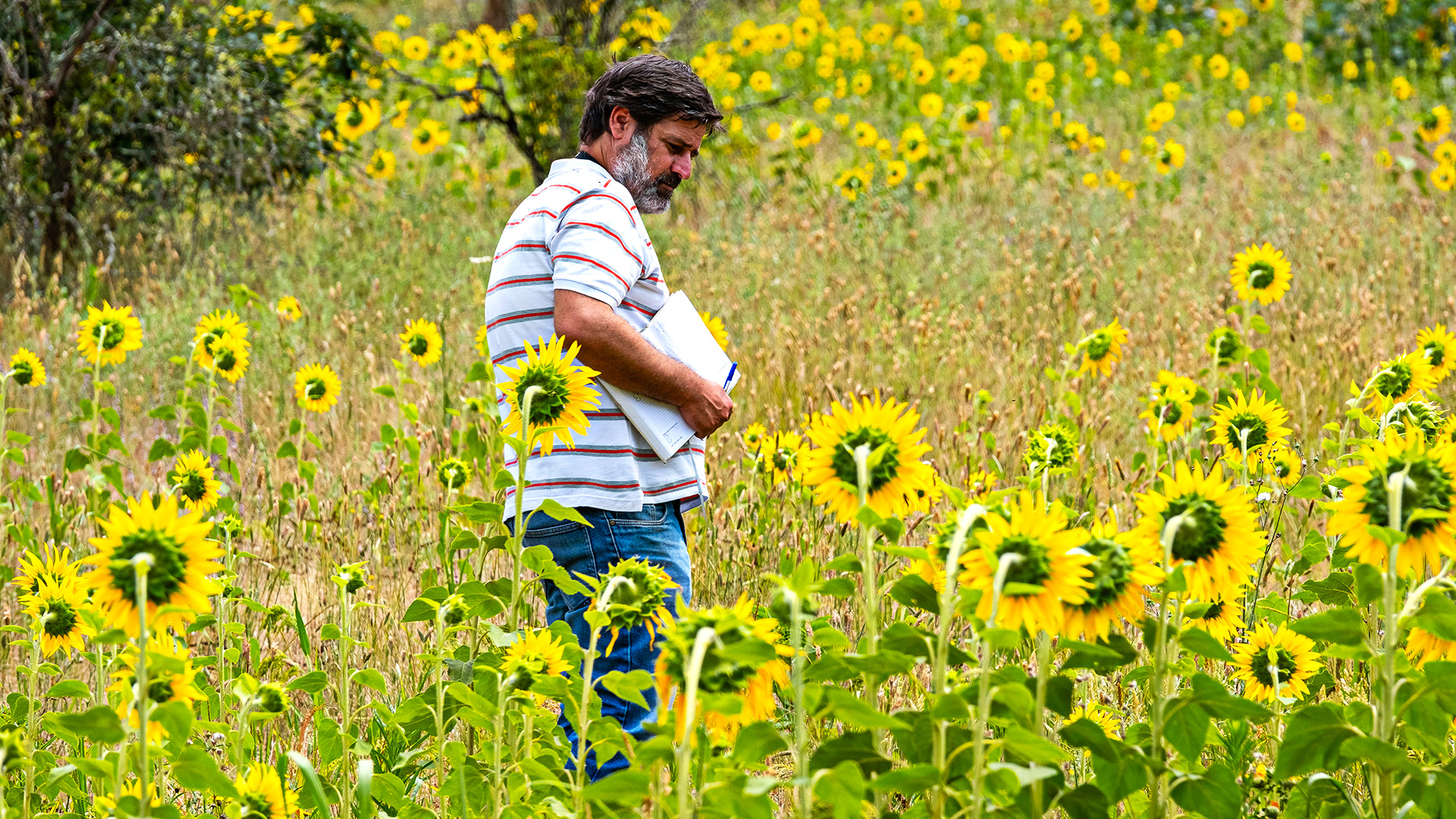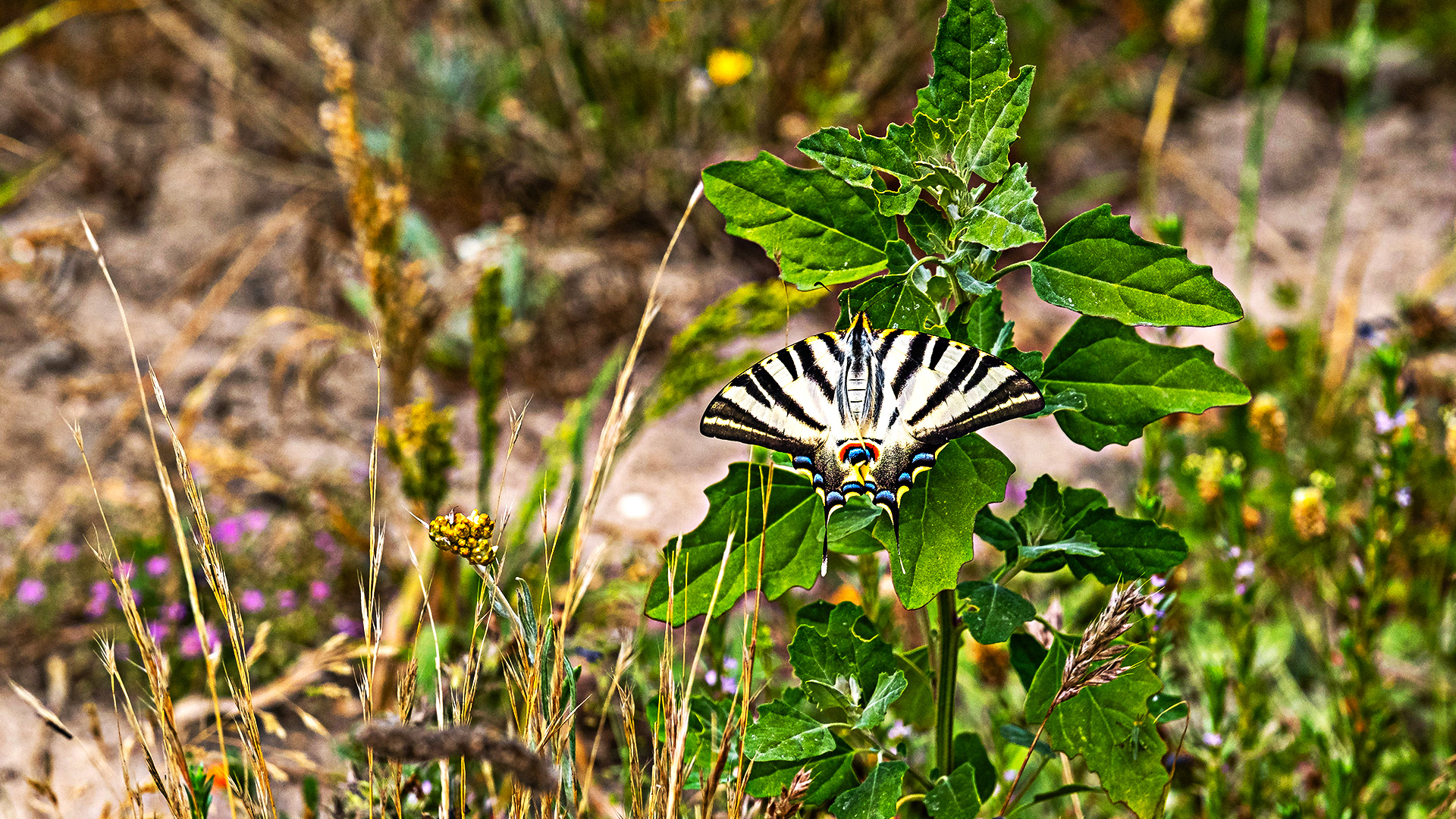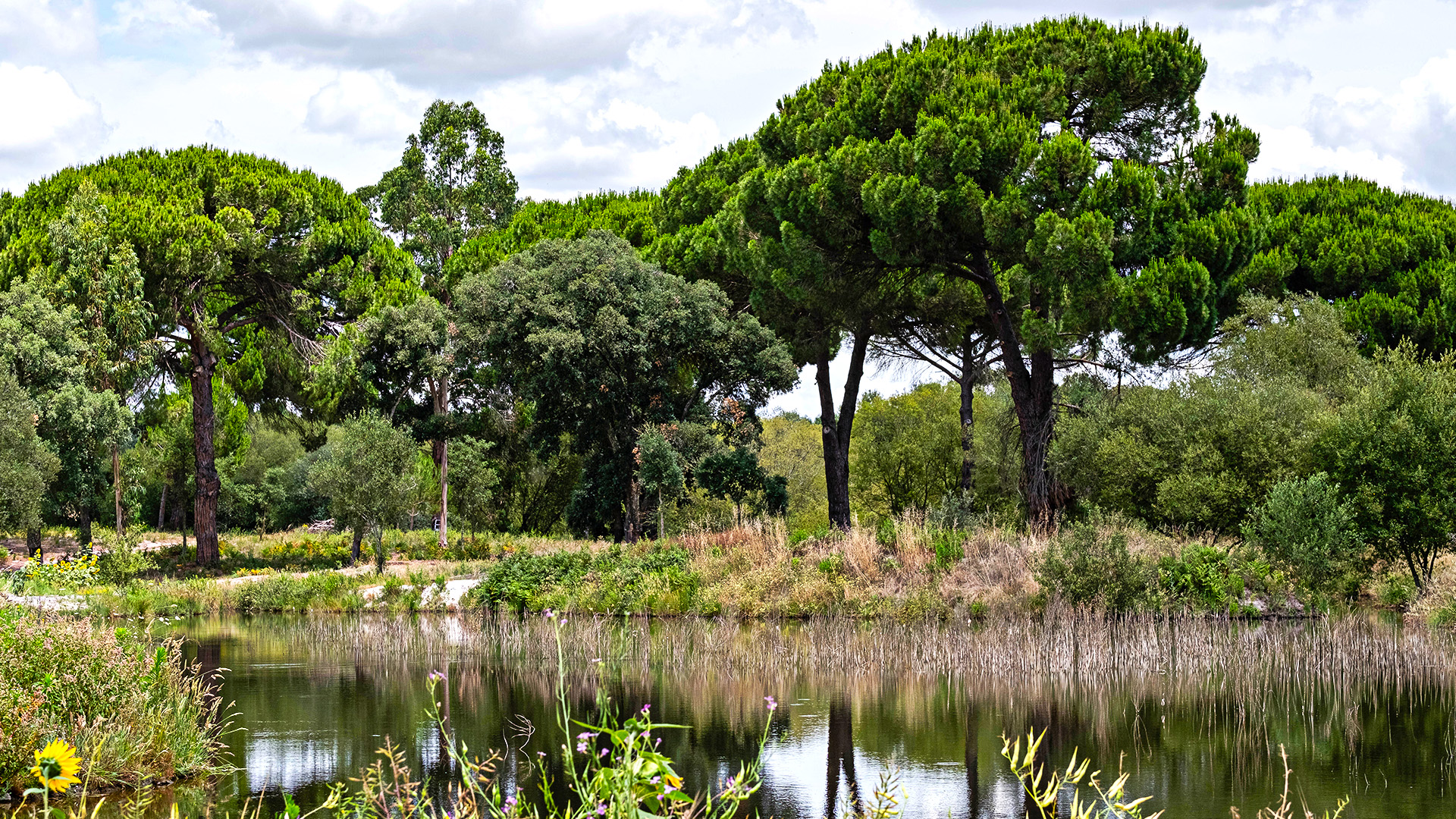The Navigator Company has long been committed to preserving forest areas under its management, and renovating them. At a time when pollinators are in decline worldwide, Herdade de Espirra is sowing seeds to attract, also, insects. This project is there to help increase biodiversity which is so important for the balance of ecosystems.
In the region of Pegões, Herdade de Espirra provides much more than 40 hectares of vineyard in its property managed by The Navigator Company, covering around 1,700 hectares. We can find here nurseries for the production of many plant species and a forest area consisting of around 600 hectares of eucalyptus, 500 hectares of cork oak trees and 300 hectares of pine trees, in addition to waterways and several species of fauna that can be found in multiple natural habitats. Some of these habitats are protected by the Natura 2000 Network, as is the case of habitat featuring 6,310 Quercus spp. of perennial leaf. Naturally, biodiversity conservation has become a priority and everything being done in this regard has a very clear purpose: to enable sustainable forest management.
As for biodiversity in this estate, a renovation project is currently underway, aimed not only to improve the conservation status of riparian habitats along the banks of waterways, but also to improve the mosaic of habitats and to have greater diversity.
According to António Aires, coordinator of production and forestry in Navigator’s southern region, “this is a holistic project. It has an ecological side to it in order to increase biodiversity, a social side, as it integrates the people who live in the region (e.g. beekeepers who can install beehives and shepherds tending herds on the farm), in addition to a pedagogical side, receiving schools to inform children on the several habitats, mindful of the importance of sustainable models.”
Work began five years ago with a process of renovation of waterways lines and adjoining areas, through the removal of invasive plants such as acacias and sugarcane, led by Forest Expert Ricardo Barrela. “From an early stage, there was a very physical first intervention with the use of equipment to cut, destroy stumps, pull them out and use them to produce biomass. We then did the maintenance, because these plants leave a bank of seeds and roots that germinate again.” By better controlling the burst of invasive plants through sowing, a process of selection of natural regeneration and planting follows. Namely, with “areas of wheat, rye, triticale and spelt, a kind of ancestral wheat. On the other hand, we are devising other areas, mainly a mix of annual and flowering species, with vegetables, such as clover, lupin (yellow and blue), vetch and others such as sunflower, to improve soil fertility and also attract insects.” – António Aires stated.
To assist natural pest control, in 2020 Navigator placed nest-boxes at Herdade de Espirra to promote the reproduction of birds, since they feed on some forest pests.
Considering that 40% of insect species may be at risk of extinction in the coming years, according to a 2019 global scientific study, it is more crucial than ever to take conservation action. “Because they are declining worldwide, it is very important for us to assist this preservation and teach those who visit us as to the importance of respecting and preserving these insect species.” After all, if they disappear, most plants will stop reproducing, eventually disappearing, weakening ecosystems and affecting the existence of animal and human life.
To monitor the evolution of the project, monitoring was carried out by the Xzen Club, an association aimed at bringing children and young people closer to nature and science. According to Pedro Henriques, president of this organization, work is being carried out at Herdade de Espirra monitoring and surveying the insect population in two plots of land. “One, where sowing was carried out with several species of plants to attract pollinators, and another where sowing was not carried out. The objective was to compare the two plots to see if the sowing was successful and if there was a greater number of insects in this area. For now, the initial results are positive and the result is a greater diversity and quantity in the number of species in the area where the sowing was carried, compared to the area (with the same size) where no sowing took place.”
However, the monitoring process can happen in several ways, depending on the purpose of the study and the area concerned. “We can carry out transepts, establishing pathways and for every meter (on each side) we record the exiting insects there. Samples were made for every 5 meters (25m2) and insects or samples were recorded using traps for flies, dipterans or beetles.”, Pedro Henriques explains us.
Regarding the importance of insects, their existence is fundamental: almost 80% of all animals on Planet Earth are insects and of course, at Herdade de Espirra they are the basis of the entire ecosystem. “We can find all kinds of insects: coleoptera, beetles, butterflies, bees, wasps and ants, diptera, orthoptera, locusts, neuroptera, among others.
Under this project, an existing pond on the property was rebuilt.” It is now full of water and we already have species (such as the small loon) nesting, feeding or simply drinking water here. It serves also another purpose, e.g. protecting the forest from fires. In other words, our firefighters can come here to supply themselves easily to fight fires without having to fetch water too far and lose efficiency, “says António Aires.
It will take some time to fully renovate certain areas, but António Aires and Pedro Henriques believe that the future is so promising, given the success achieved so far, that it may be replicated in other Navigator properties.
